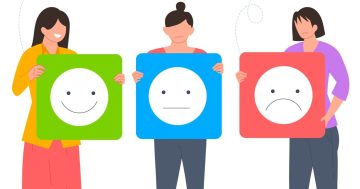
With the recent news that a chiropractor has been charged after allegedly leaving racist comments on Senator Nova Peris’ Facebook page, it is fascinating to analyse the mindset of people who feel the need to insult, belittle, and degrade others online.
Clearly many people feel social media is an outlet for expressions and feelings they must keep repressed in their “real world” lives.
The existence of “internet trolls” has been documented since the mid-1990s. Classic troll behaviour came from people who used anonymous accounts as a way to avoid identification. The anonymity implies that people knew what they are writing was transgressive and took steps to avoid accountability for their actions.
Now though we are seeing more people post things online without making any attempt to hide their identity. With 65% of Australians using Facebook at least once a month, Facebook has become the de facto standard for many of the casual conversations that used to happen in pubs, bars, and backyards. Facebook’s real name policy means it is mostly very easy to work out the identity of people making these posts.
People posting racist, sexist or other offensive comments are increasingly facing real-world consequences. After poorly-thought out posts we have seen hotel supervisors fired for insulting a columnist, sports presenters sacked for Anzac Day tweets, airport workers sacked for pro-ISIS comments, and teachers fired for writing about taking drugs.

After the fact, many people claim that the posts were “just a joke” or “taken out of context” or even that “someone hacked my computer”. While not excusing their behaviour, they may have been subject to what the US psychologist Dr John Suler calls the online disinhibition effect. Suler outlines six reasons why people feel free to say things online that they would not in person:
- We are anonymous – When we are anonymous we feel disconnected from our normal personality. Some people even consider their online personality to be an alter ego.
- We are invisible – Since others can’t see us, we can mask emotional signals of distress, fear, etc. This can allow people to say things online that they wouldn’t be able to face to face.
- We don’t see responses straight away – We don’t read what others write at the same point in time, and responses may take time to appear. This allows people to write without fear of immediate judgement (and may never see responses at all).
- We make up who others are – When we are interacting with others online, we often simply invent our perception of who someone else is. This may allow us to justify nastiness to others on the basis of this imagined personality
- We don’t see it as real – Online activities can seem to be insubstantial or “just a game”. This is particularly common with some of the nastiest trolls who turn out to be teenagers.
- We don’t fear punishment – Many places on the Internet have no obvious authority figures to control our behaviour, or the punishments for transgression seem minimal (eg being banned from a forum).
All of these factors encourage people to act out, often impulsively – even if the long-term impacts are serious. We are used to operating in environments where social disapproval and punishment is a real and tangible threat. When these are taken away sometimes our worst impulses come to the fore.
This is not an easy problem to solve.
What do you think is the reason for negative online behaviour?
What can we do as a society to eliminate online trolling?
Kim Fischer is an ACT Labor candidate for the seat of Ginninderra in the 2016 ACT Legislative Assembly election.





















